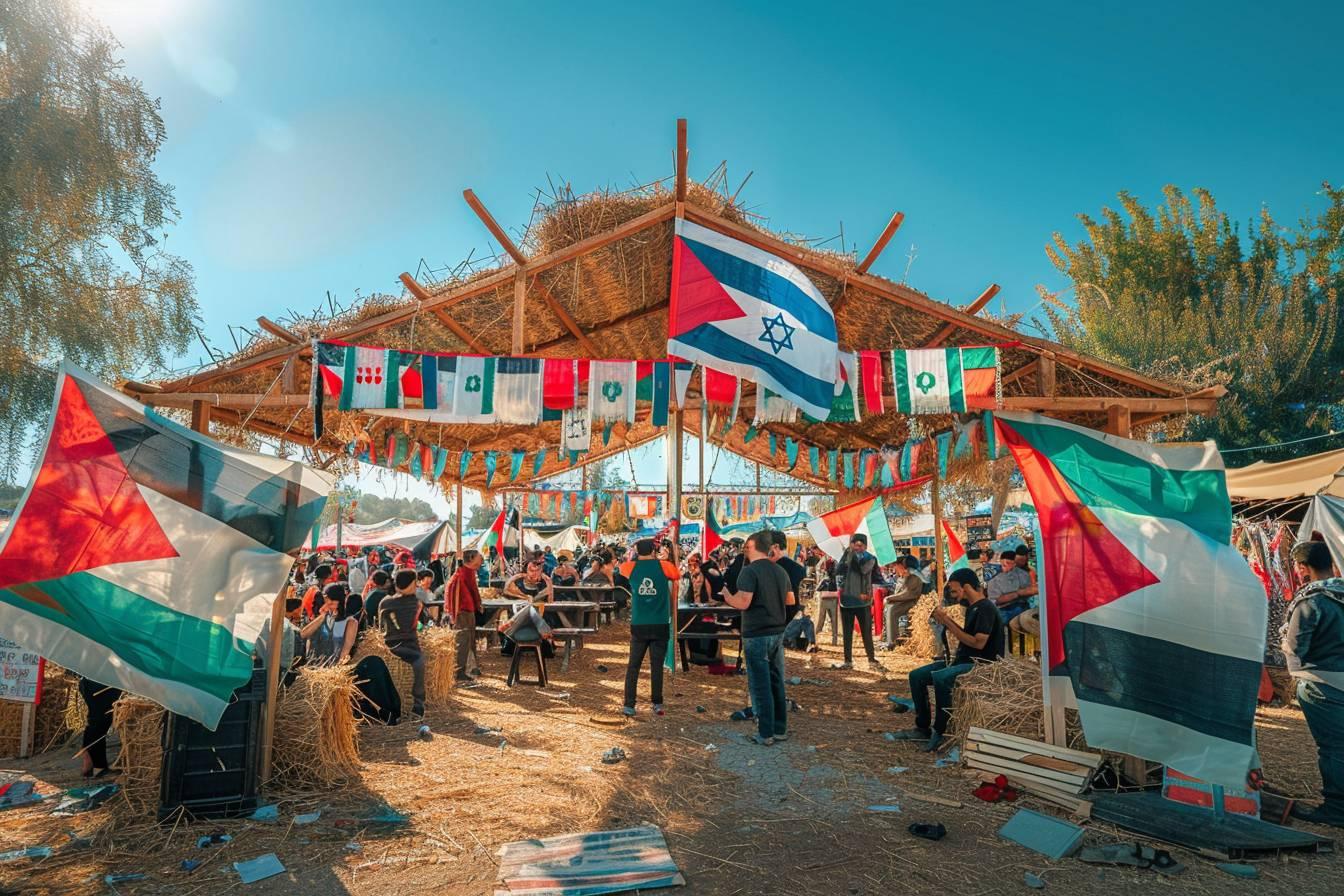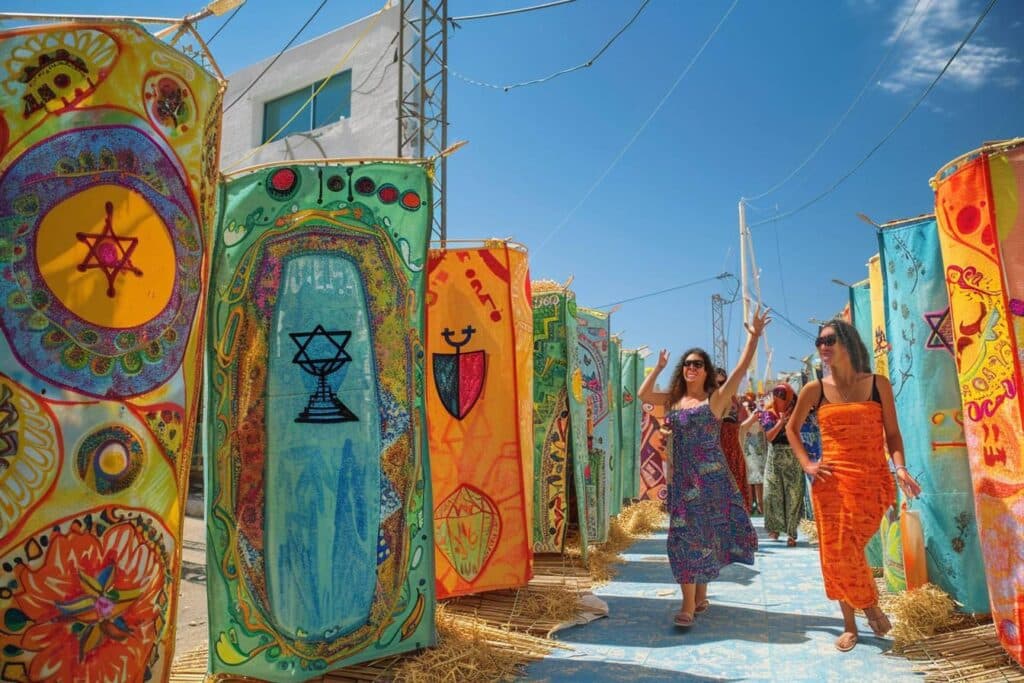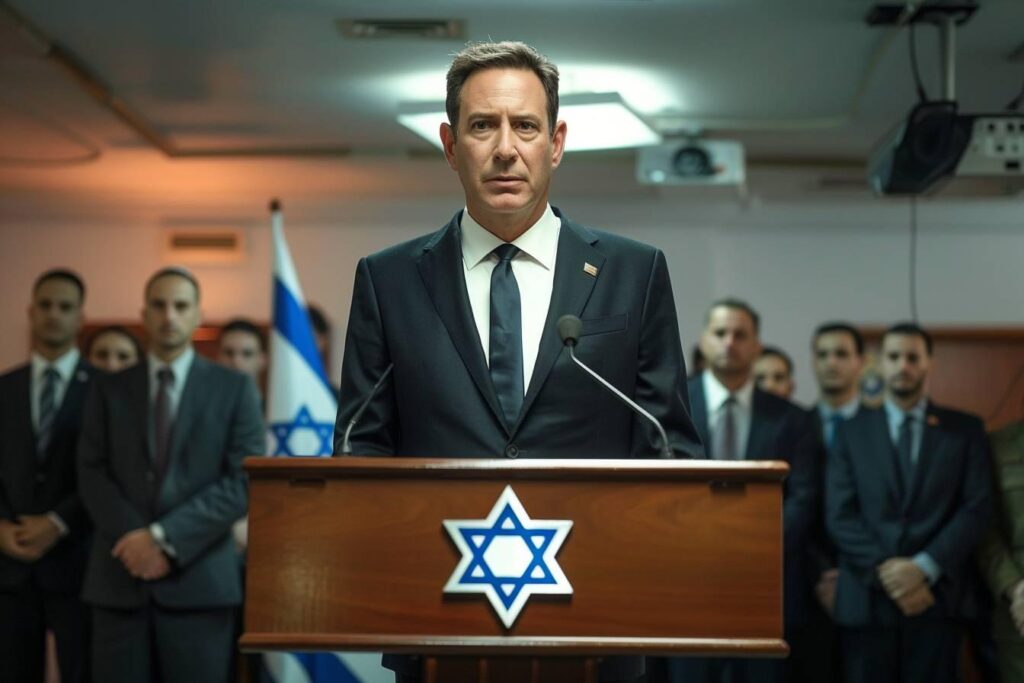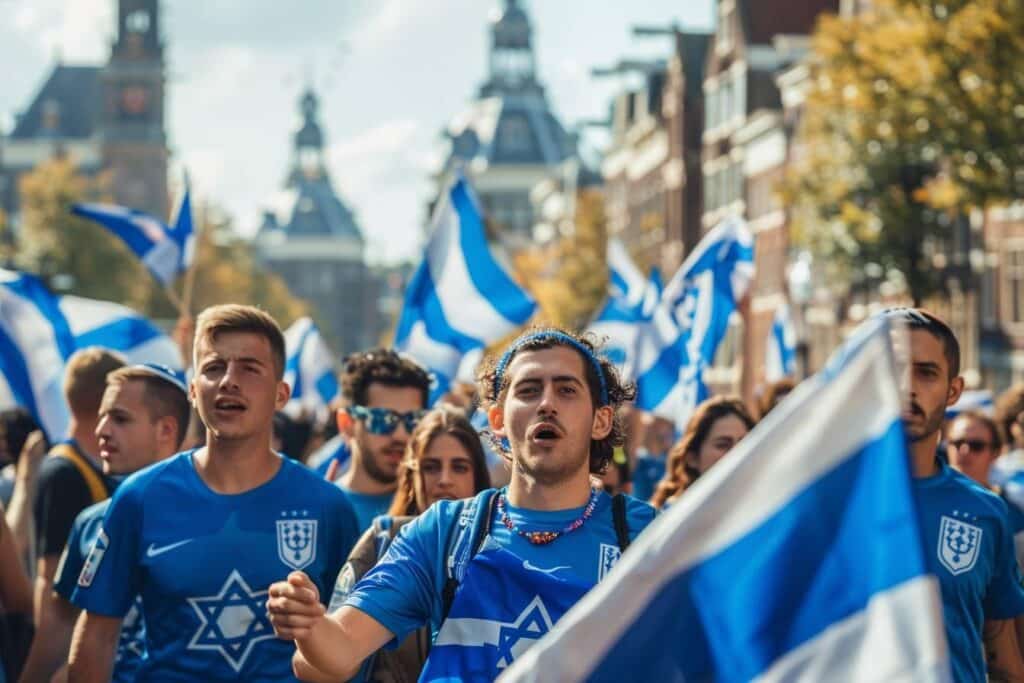Gaza Solidarity Sukkahs: A New Wave of Jewish Expression and Campus Controversy
In recent weeks, a new form of protest has emerged on several U.S. university campuses, intertwining the traditional Jewish festival of Sukkot with political activism. Dubbed the “Gaza Solidarity Sukkahs,” these structures have sparked intense debate over the boundaries of religious expression, student activism, and the ongoing Israeli-Palestinian conflict.
The Rise of Gaza Solidarity Sukkahs
At universities like Rutgers, UCLA, and Simmons, Jewish students constructed sukkahs—not just for the usual celebration of Sukkot but as a form of protest against Israel’s military actions in Gaza. These sukkahs were designed to stand as symbols of solidarity with the Palestinian people, drawing attention to what these students see as unjust actions by the Israeli government.
However, not long after their construction, many of these sukkahs faced removal by university administrations. Citing violations of newly implemented public protest rules—rules that were themselves a reaction to earlier pro-Palestinian encampments—administrations have dismantled these structures. In more extreme cases, such as at Rutgers and UCLA, the removals involved bulldozers and police action, leading to further outcry and media attention.
Incidents of Confrontation
- Rutgers University: A bulldozer was used to dismantle the sukkah, which had been set up without official permission.
- UCLA: Campus police broke up a sukkah assembly and arrested one protester for refusing to leave the site.
- Simmons University: The Hillel sukkah was vandalized with graffiti labeling it a “Gaza Liberation Sukkah.”
The Debate over Religious Expression and Political Activism
The establishment and subsequent dismantling of these Gaza solidarity sukkahs have ignited a fierce debate within and beyond Jewish student communities. Proponents argue that these sukkahs are a legitimate extension of Jewish values—principles of justice and freedom that compel them to speak out against what they perceive as oppression.
Opponents, however, view these actions as deeply problematic. They argue that the sukkahs, traditionally symbols of peace and hospitality, are being co-opted for political purposes that they say could incite division and even violence. Furthermore, some critics have labeled the movement as anti-Semitic, asserting that it unfairly targets Israel and disrupts Jewish campus life.
Perspectives from Community Leaders
- Rabbi David Stern: “Sukkot is about reflecting on vulnerability and providing shelter; these students are using that tradition to highlight the vulnerability of others.”
- Professor Leah Goldstein: “While I understand their intentions, using Sukkot to make political statements risks polarizing our community on issues that require sensitive dialogue.”
- Aaron Levine, Student Organizer: “We’re here not just to celebrate but to advocate. If our faith teaches us anything, it’s that we must stand with the oppressed.”
University Responses and Policies
In response to these events, universities have been put in a difficult position. Struggling to balance respect for student expression with the need to maintain order and respect for campus policies, administrations have varied in their approaches.
Most universities claim that their actions are not about stifling free speech but rather enforcing rules impartially. However, students involved in setting up the Gaza solidarity sukkahs argue that these policies are selectively enforced or even created to suppress their specific forms of protest.
The Impact on Jewish Campus Life
The controversy surrounding the Gaza solidarity sukkahs has had ripple effects throughout Jewish communities on campuses across the nation. For many students, these events have forced a reevaluation of what it means to be Jewish in America today—how they can reconcile their faith with their political beliefs and actions.
This movement has also sparked broader conversations about the diversity within Judaism itself—a reminder that the Jewish community is not monolithic but composed of a wide range of beliefs and practices.
Looking Forward: The Path Ahead for Campus Activism and Dialogue

The saga of the Gaza solidarity sukkahs highlights the complex interplay between religion, politics, and identity. As campuses continue to be hotbeds for activism and debate, one thing remains clear: dialogue must continue. Universities play a crucial role in facilitating this dialogue, providing spaces where students can both express themselves freely and engage constructively with differing viewpoints.
Moving forward requires all involved—students, faculty, administration—to navigate these challenges with both openness and respect for diversity in thought and practice within Judaism and beyond.
In this ever-evolving landscape, the story of the Gaza solidarity sukkahs is but one chapter in an ongoing dialogue about freedom, justice, and peace—themes at the heart of both Sukkot and broader human aspirations.



